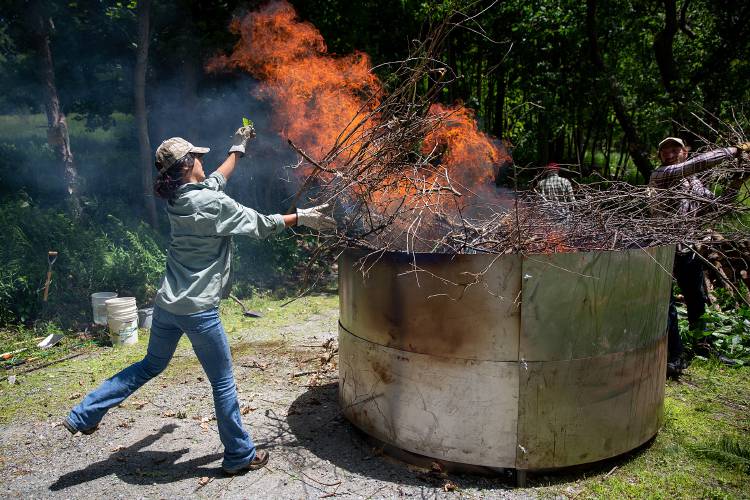Biochar is one of those things that sounds too good to be true: Turning waste wood into a carbon-locking, soil-helping material through a simple, cheap process (pyrolysis – burning it in a low-oxygen environment).
There’s a big biochar plant being developed in Maine at a former mill (I profiled it last year) but it also works on a small scale. The Valley News has a story about a landowner who does it and helps others, too.
Burning for biochar most commonly occurs in the western United States, where the process thins out woody debris on the forest floor that contributes to wildfire risk. While this is certainly still a benefit in New England, biochar would likely be most useful for building productive soil without the use of chemical fertilizers.
“The tree died; it did its thing. How can we keep this tree’s legacy alive?” Scherer asked, nodding toward the biomass pile he’d been feeding into the kiln.
“We’re using the things that are around. This closes the loop.”


 Return to the Concord Monitor
Return to the Concord Monitor
Hi, I’m looking for contact info on the folks with the portable kiln. Would like to try it on my farm.
Hello! My name is Kenneth Scherer. I am the one in the photo with the portable Kiln. You can reach me at Kofrass@gmail.com